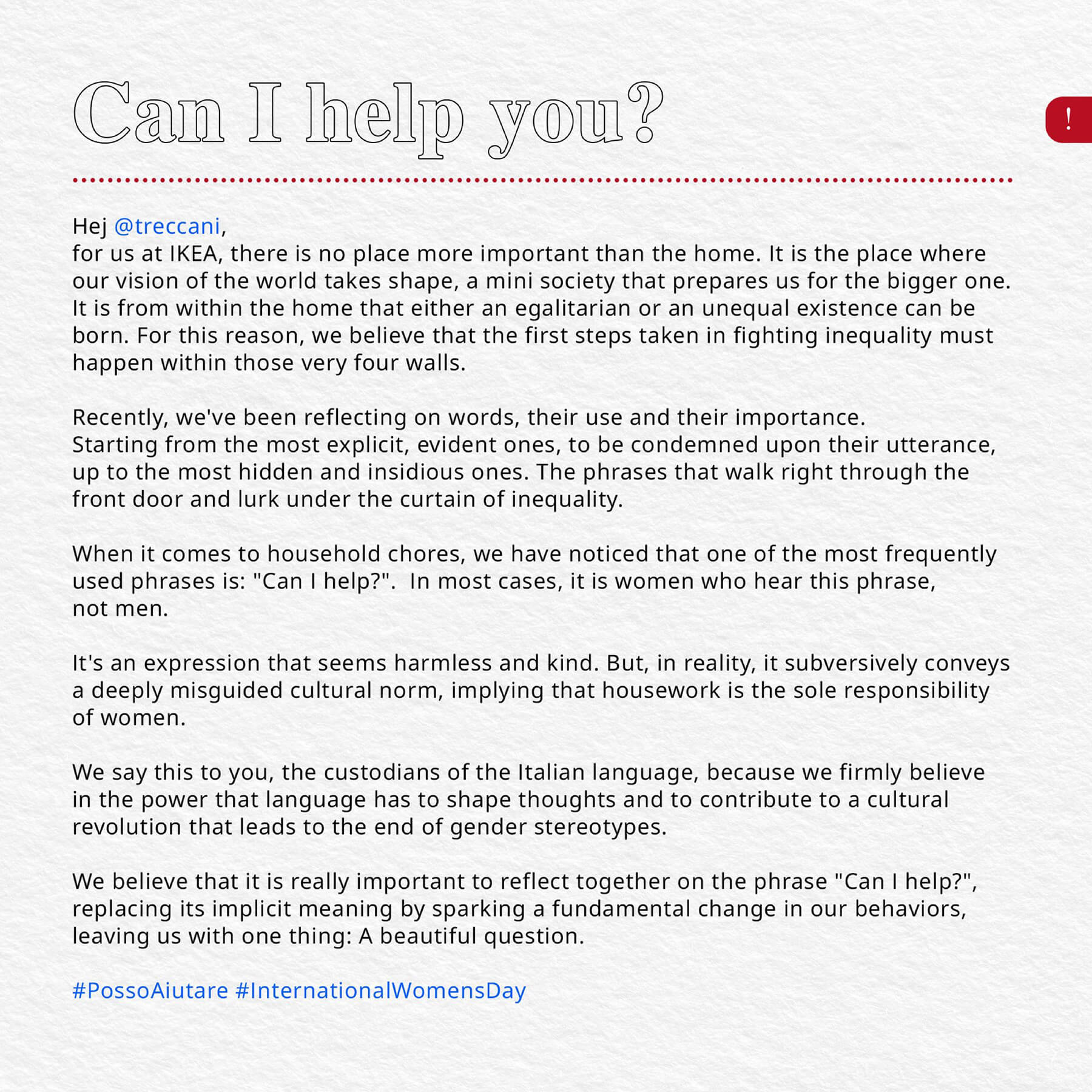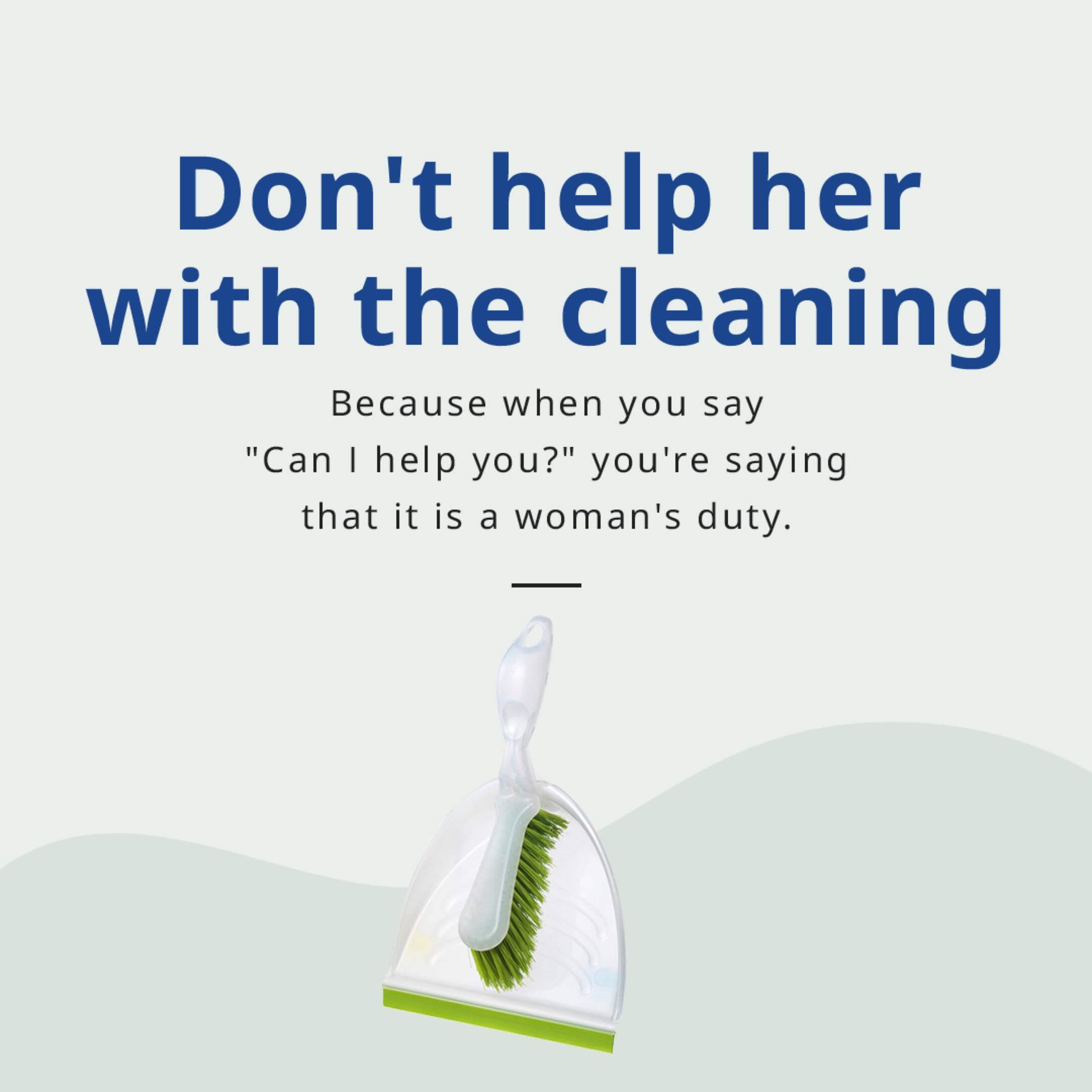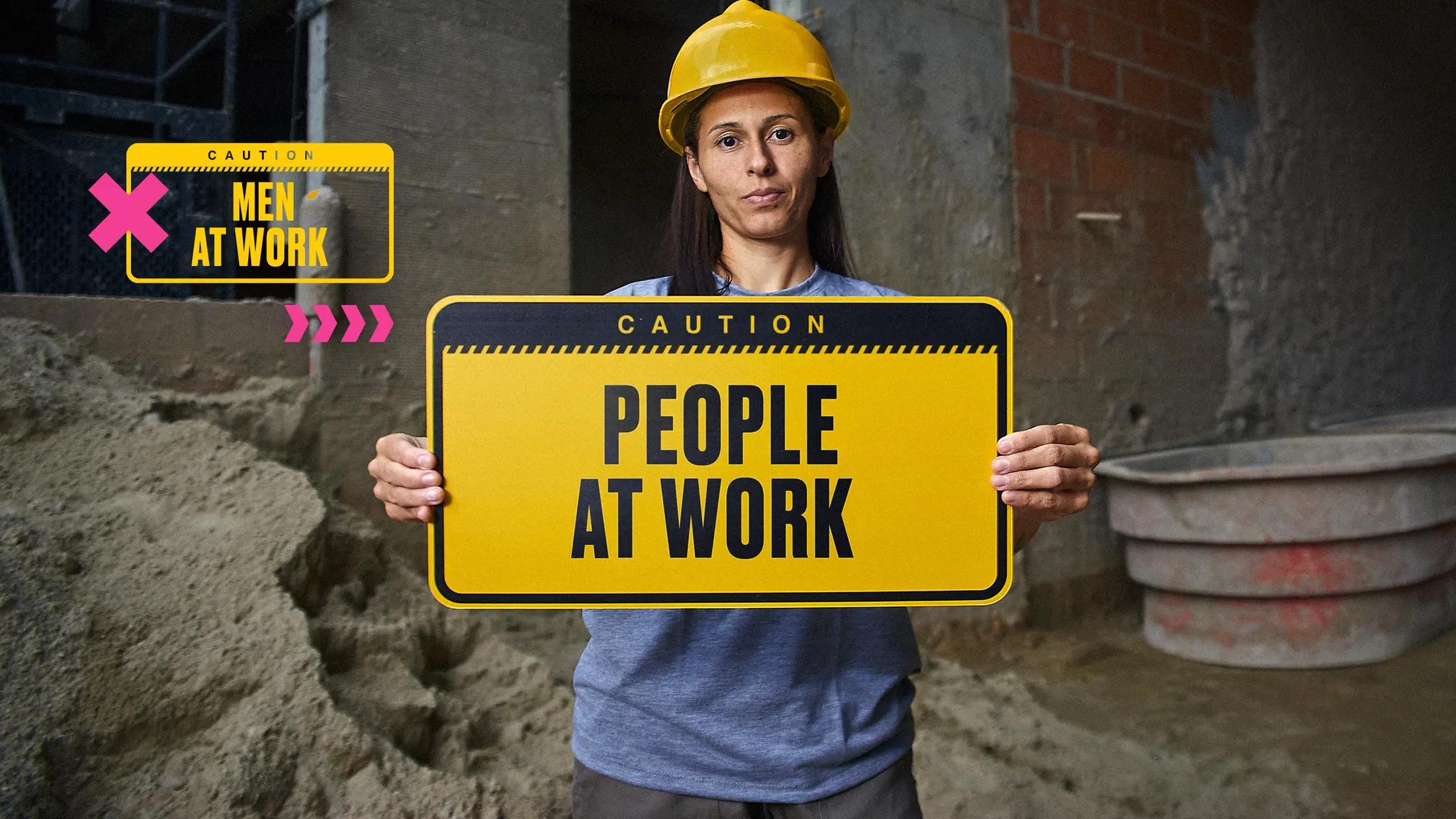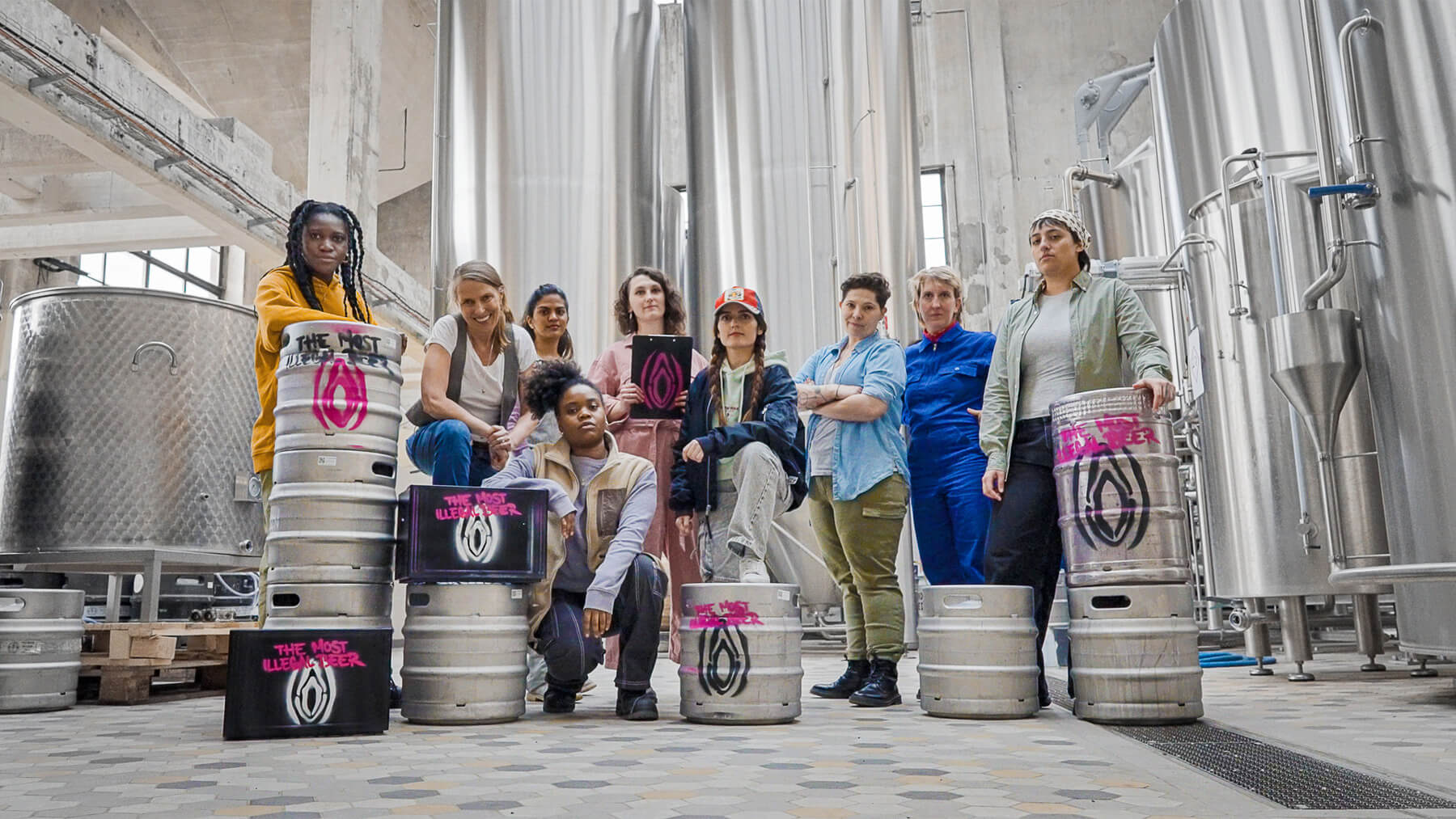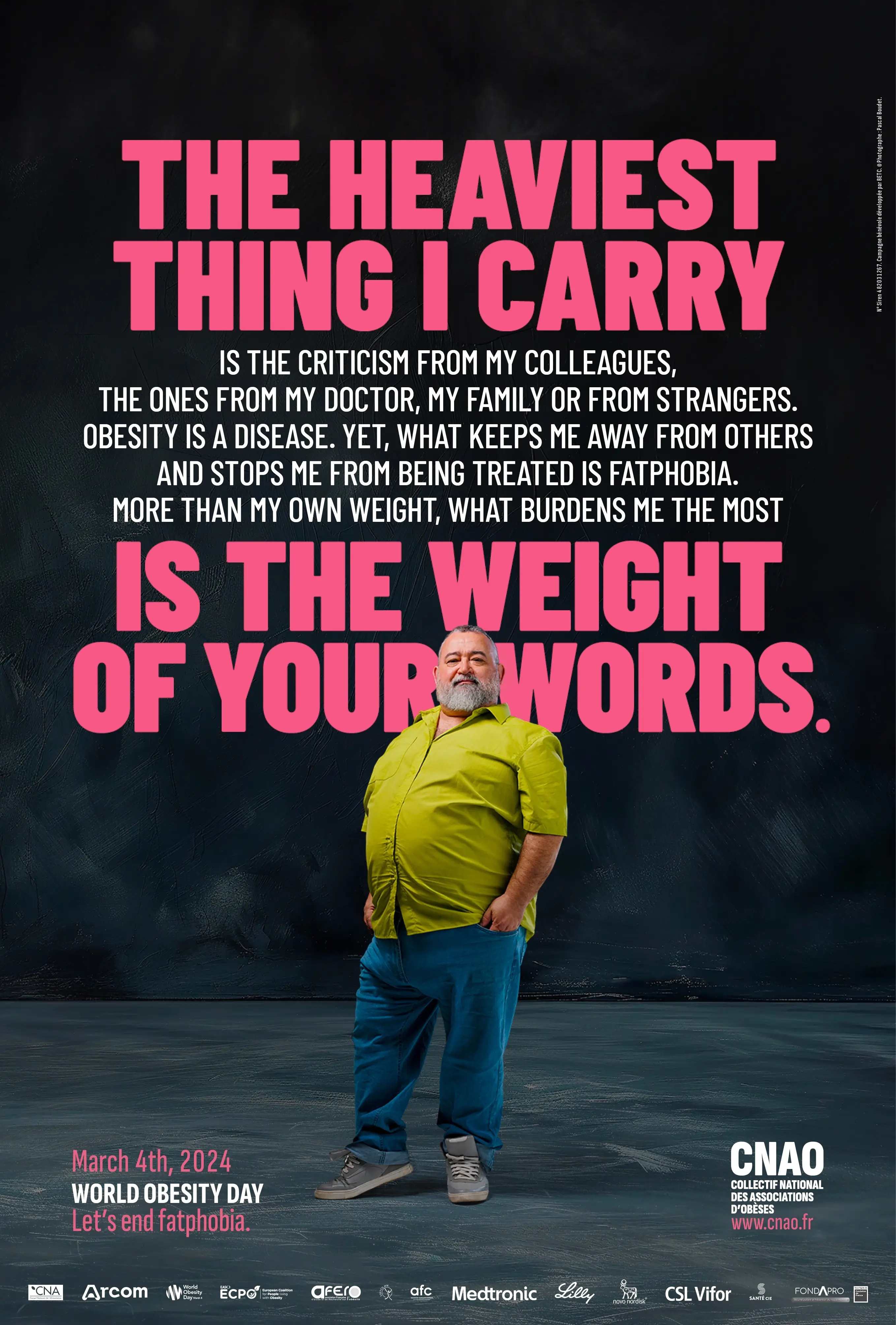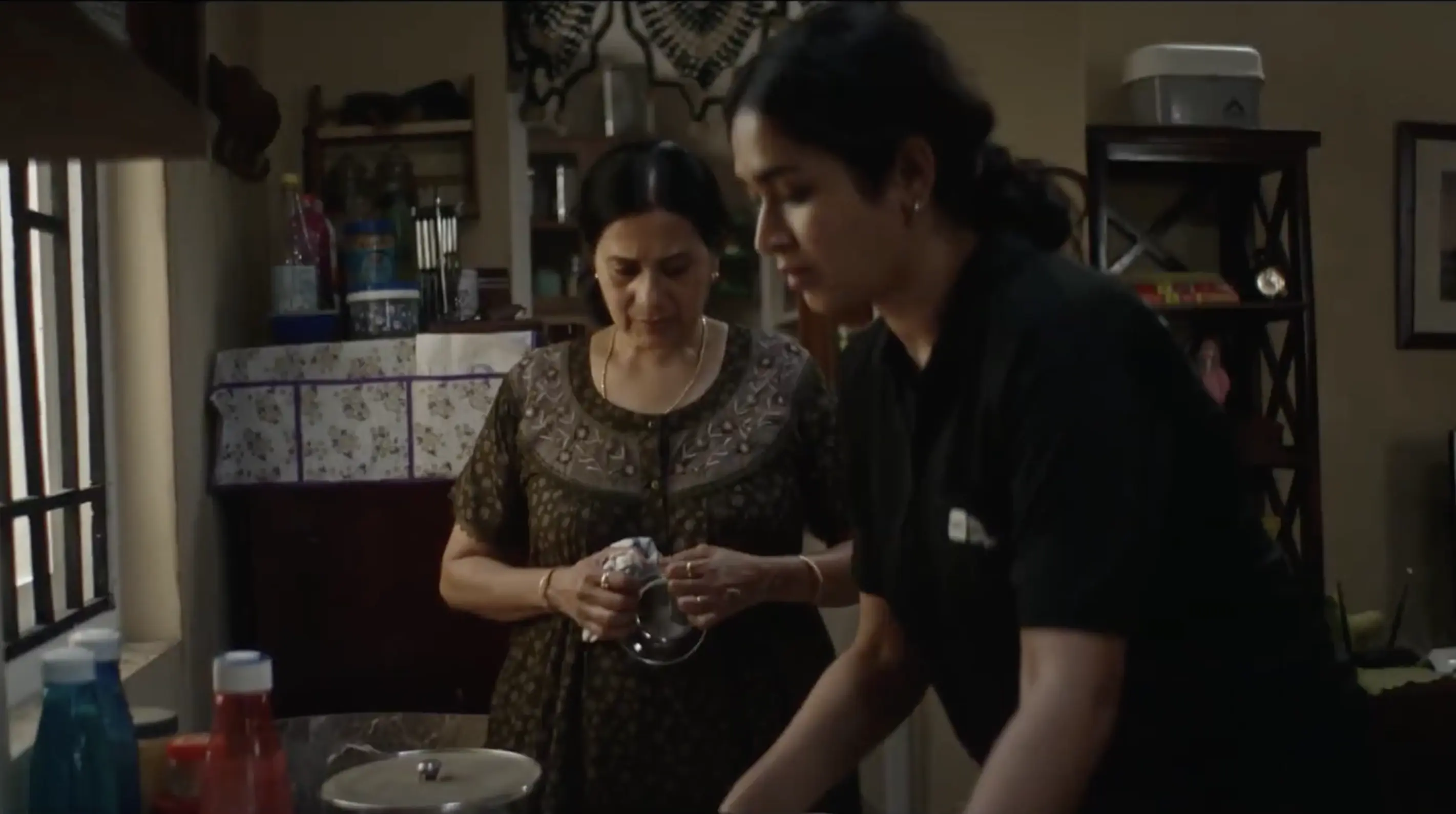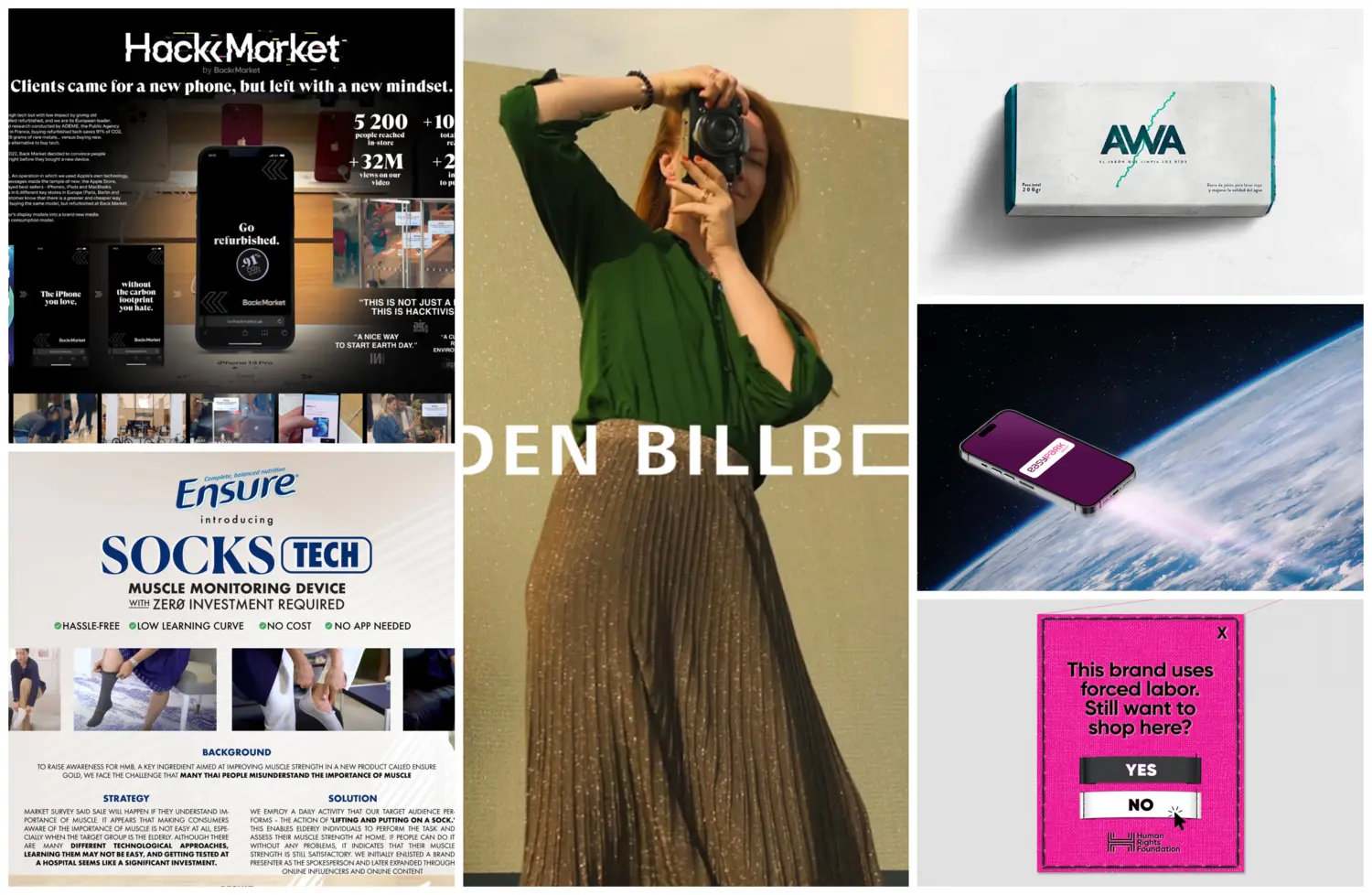IKEA: Can I help? | A campaign that is essential in fighting gender inequalities
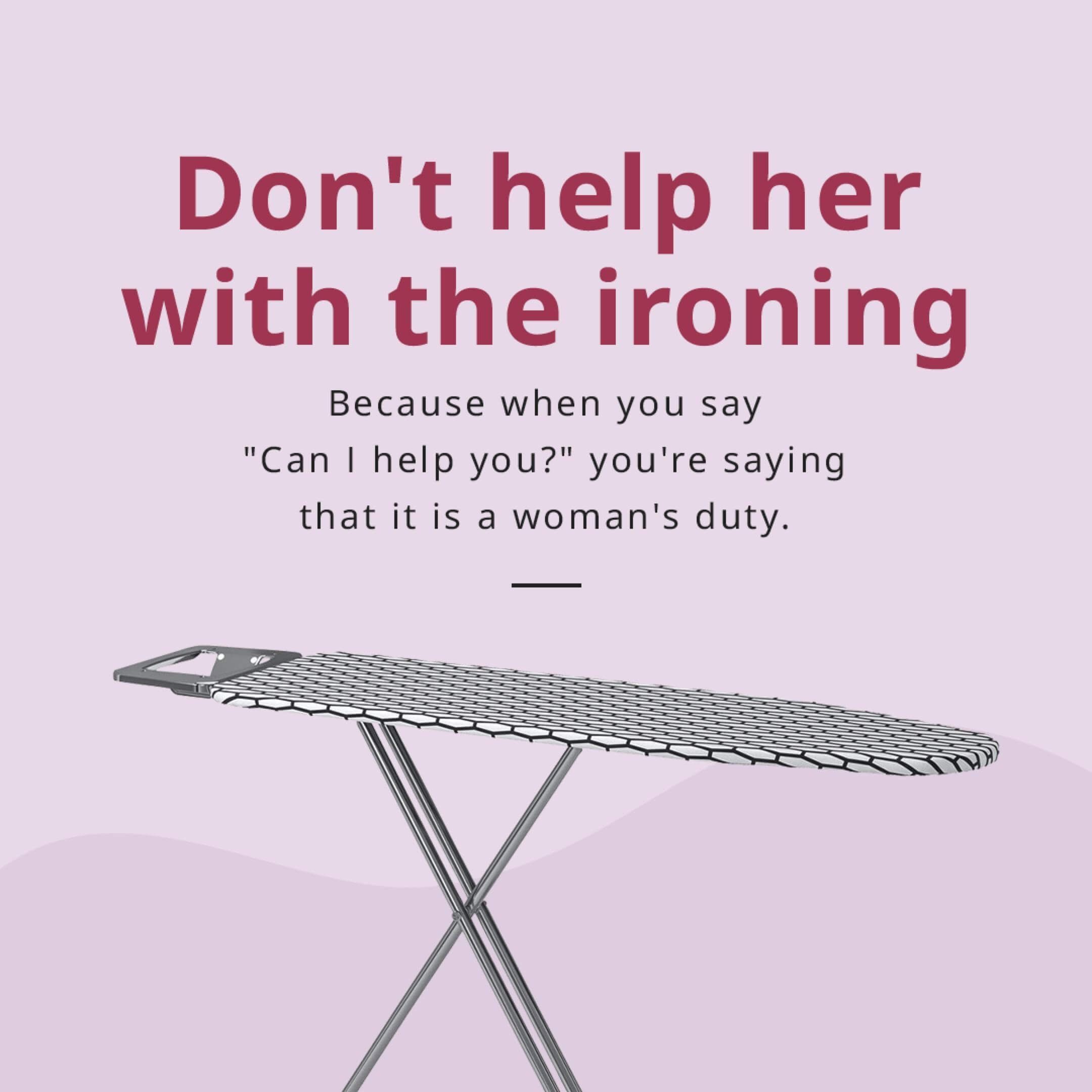
For International Women’s Day, IKEA wrote an open letter to Treccani – one of Italy’s most important dictionaries – to analyze how the question “Can I help?” at home shifts housework responsibility exclusively to women.
IKEA has always tried to improve home life for all. Year after year, the brand studies people’s behaviors inside the home because it believes that the house is a mini-society that, together with others, forms a larger one: the one in which we live. From home, therefore, a fair society or one torn by inequalities can be born.
For this reason, to mark International Women’s Day 2021, IKEA and We Are Social Milan wanted to focus on gender inequalities and, in particular, on words and their importance. But instead of focusing on the words and phrases that explicitly contribute to discrimination against women, as they are more easily recognizable and, therefore, quickly condemned, IKEA wanted to turn the spotlight on one of the most used phrases in our homes when it comes to household chores: “Can I help?”
This expression is often addressed to women by men in the home, which may seem harmless, but in reality, hides a deeply misguided shared cultural attitude. Through the formula “Can I help?”, it is assumed that care and assistance work within the home is the sole responsibility of its female inhabitants.
To reflect on the use of the verb ‘help’ inside the home and fight gender inequalities, IKEA wanted to involve Treccani – one of the most important dictionaries in Italy – through an open letter on social media in which they asked linguists for an authoritative point of view on the subject. The in-depth response from Treccani promptly arrived within the day.
With this message, IKEA and Treccani demonstrate how language and everyday actions are essential in fighting gender inequalities, starting from the home.
Credits
Advertising Agency: We Are Social Milan, Italy
Executive Creative Director: Alessandro Sciarpelletti
Executive Creative Director of Production: Daniele Piazza
Associate Creative Director: Paulo Gonzalez, Mattia Lacchini
Creative: Lorenzo Canazza
Art Director: Giulia De Chirico
Editor: Sergio Giussani
Head of Client Services: Francesca Feller
Senior Account Director: Mirco Bertola
Senior Account Manager: Diego Vallieri
Senior Account Executive: Alessia Bloise
Account Executive: Giuliano Franco
Writer: Francesco Pierucci
Head of Strategy: Bruno Tecci
Strategy Supervisor: Marta Prosperi
